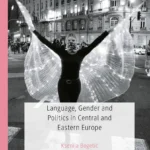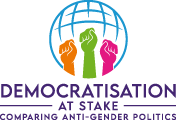
Essay: “No Longer the Alexanders, the Napoleons, or the Attilas”: Gender, Illiberalism, and Quiet Resistance”
September 8, 2025
Essay: “Anti-Gender Discourse and the ‘Dictatorship of Tolerance’: Insights from Ukraine, Slovenia, and Croatia”
September 8, 2025Karaduman, Emine, Gülistan Gürsel-Bilgin, Havva Caner, Mine Afacan Fındıklı, and Fatma Seggie. 2026. "Views of Women Doctoral Students and Dropouts on Doctoral Education in Türkiye." Social Inclusion, 14, Article 9828. https://doi.org/10.17645/si.9828
ABSTRACT
Countries must adapt their higher education systems to address the demands of 21st‐century knowledge societies. Türkiye, a developing country (OECD, 2025), ranks 48th in the Human Development Index (UNDP, 2022). Despite improvements, gender inequality remains a significant issue in Türkiye, with women often dropping out of educational programs due to household and caregiving responsibilities (Conger & Long, 2010; Gür & Bozgöz, 2022; Quinn, 2013). This study explores the experiences and challenges of women in doctoral education, highlighting their roles as change agents in higher education. It presents the views of ten current women doctoral students and ten dropouts from various programs of public universities in Türkiye. The study’s qualitative research captures diverse perspectives by including voluntary participants who were single, married, or divorced; with or without children; and employed outside academia. Data collected from in‐depth semi‐structured interviews were thematically analyzed using interpretative phenomenological analysis (IPA) to explore the participants’ experiences and perceptions. Two themes were identified through IPA: (a) challenges, which include the imposition of traditional roles, financial constraints, and unconstructive relationships with faculty members or advisors, and (b) the need for constructive relationships, defined by support from faculty, advisors, and peers. Suggestions for support mechanisms are also discussed.

